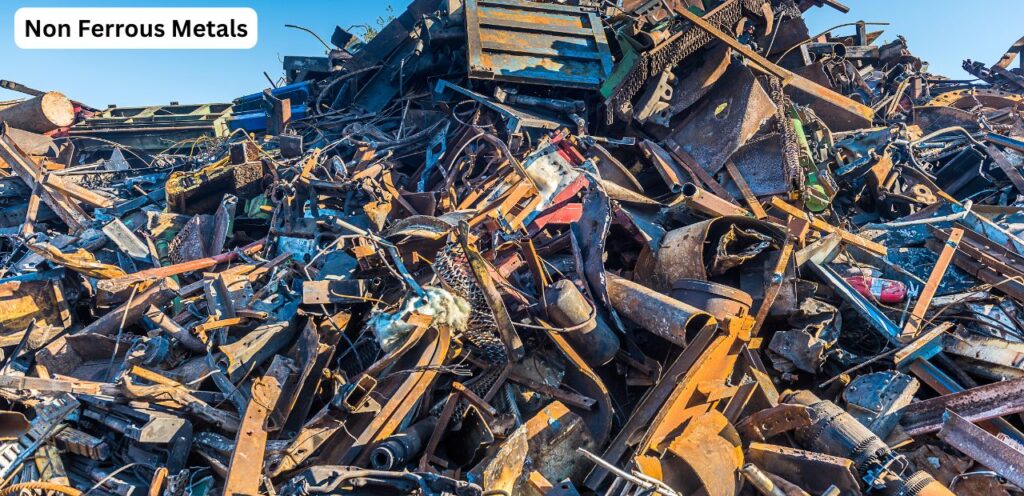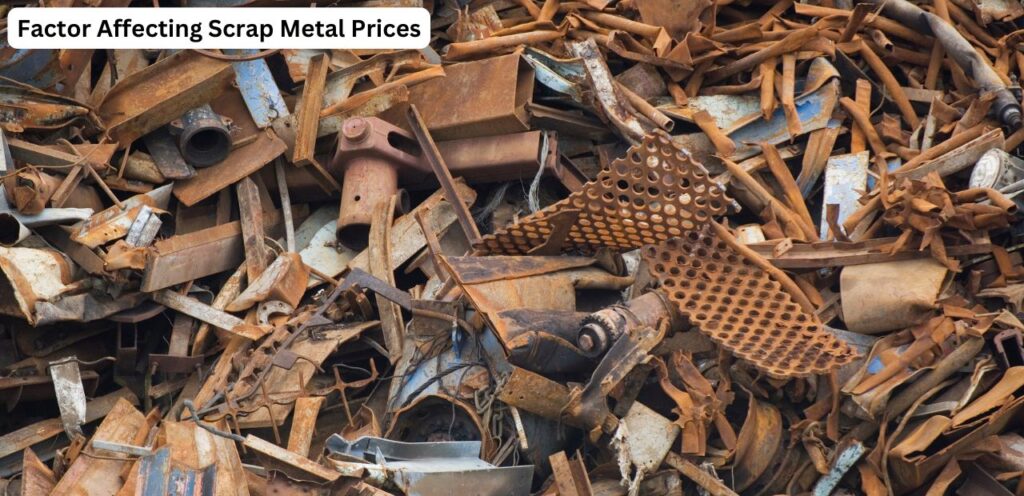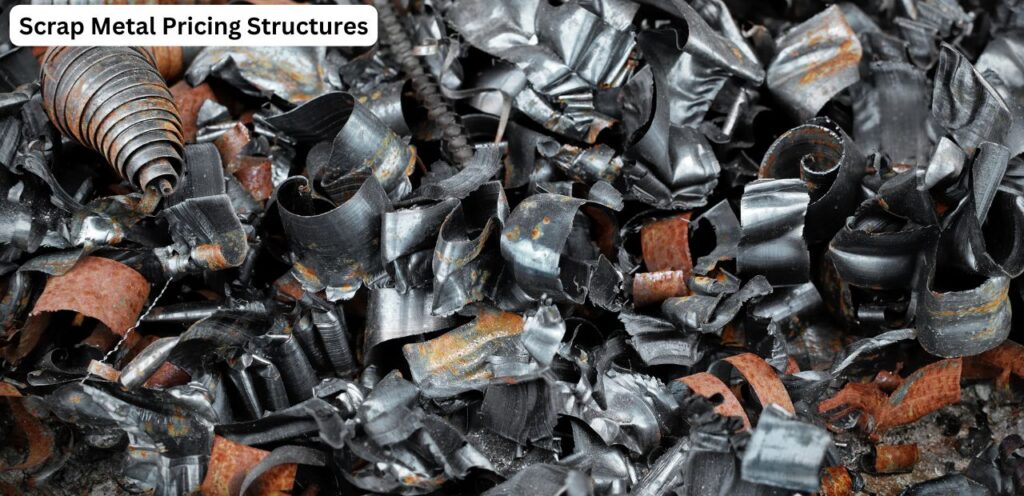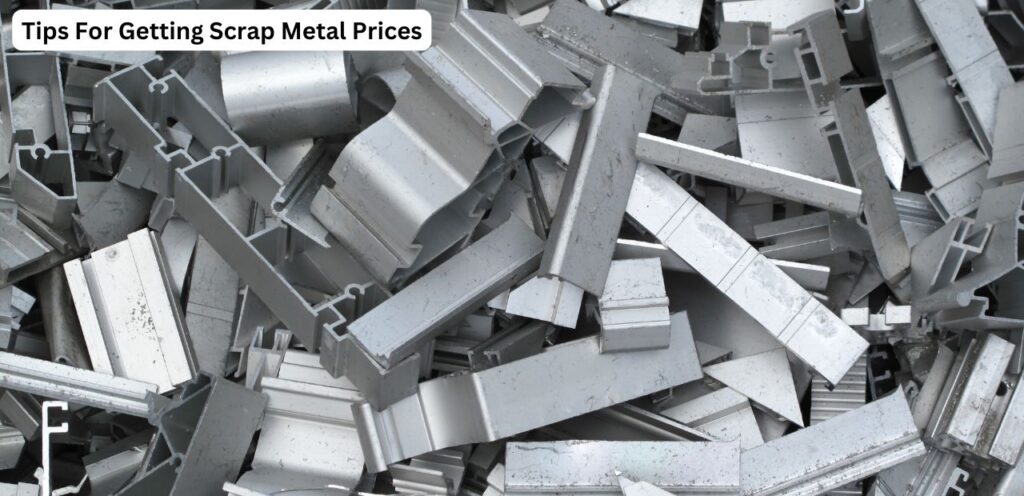Scrap metal prices are a constantly evolving landscape, influenced by a myriad of factors ranging from global market trends to local demand. Whether you’re a seasoned scrapper or new to the industry, understanding these dynamics is crucial to maximizing your returns and contributing to sustainable recycling efforts.
Non Ferrous Metals

Look at the all Scrap Metal Prices Below.
Copper
| Bare Bright Copper | £3.65 to £3.73 Per Kg |
| Copper Tank | £2.99 to £3.57 Per Kg |
| Copper 1 | £3.41 to £3.60 Per Kg |
| Copper 2 | £1.87 to £2.00 Per Kg |
| Mix Copper | £1.54 to £1.79 Per Kg |
| Braziery Copper | £1.45 to £2.65 Per Kg |
| Copper Cable | £1.79 to £1.89 Per Kg |
| Copper Wire | £1.89 to £2.00 Per Kg |
| Copper Pipe | £2.99 to £3.44 Per Kg |
| Insulated Wire 2 | £1.16 to £1.47 Per Kg |
Copper is one of the most sought-after non-ferrous metals in the scrap industry, commanding a higher price per pound compared to other metals. Its widespread use in electrical wiring, plumbing, and industrial machinery contributes to its high value.
The price of copper fluctuates based on market demand, global supply chains, and the current economic climate. Copper wire, in particular, is a hot commodity in scrap yards, often yielding the highest returns for scrappers.
The factors that influence copper prices is crucial for anyone involved in metal recycling. Global events, such as changes in trade policies, economic sanctions, or natural disasters, can significantly impact copper prices. For those looking to scrap copper, staying updated on the latest market trends and using reliable resources like the iScrap App is essential to maximizing profits. Scrapsy also provide you Scrap Iron Prices.
Alumunium
| Aluminum Extruded | £1.10 – £1.16 Per Kg |
| Aluminum Cast | £0.56 – £0.71 Per Kg |
| Aluminum Turnings | £0.50 – £0.90 Per Kg |
| Mixed Aluminum | £0.54 – £0.85 Per Kg |
Aluminum is another valuable non-ferrous metal, widely used in various industries, from automotive manufacturing to construction. Its lightweight, corrosion-resistant properties make it a preferred material for a range of applications.
The price of aluminum scrap is typically lower than that of copper, but it still represents a lucrative opportunity for scrappers, especially when collected in large quantities.
Recycling aluminum is particularly important from an environmental standpoint. The energy required to recycle aluminum is significantly less than that needed to produce new aluminum from raw materials.
By scrapping and recycling aluminum, not only can individuals earn money, but they also contribute to reducing carbon emissions and conserving natural resources. Look at the detailed Scrap Aluminium Prices.
Brass
| Clean Brass | £3.70 per kg |
| Mixed Brass | £3.61 per kg |
| Brass Cuttings (Brass Swarf) | Closed to mixed brass |
| Brass Rod | £3.70-£4.05 per kg |
Brass, an alloy of copper and zinc, is highly valued in the scrap metal market due to its durability and resistance to corrosion. It’s commonly found in plumbing fixtures, musical instruments, and decorative items. Brass scrap prices can vary depending on the zinc content and the condition of the material.
Scrappers often find brass in older household items, car radiators, and hardware. The market for brass is competitive, and prices are influenced by the demand for copper, given its copper content. For those scrapping brass, separating it from other metals and ensuring it’s free from contaminants can help in getting a higher price at the yard.
Bronze
| Bronze Bearings | £3.29 – £3.46 per kg |
| Bronze Pipe | £3.28 – £3.36 per kg |
| Bronze Valve | £3.24 – £3.32 per kg |
Bronze, an alloy of copper and tin, is another non-ferrous metal with significant value in the scrap industry. Used historically for coins, medals, and various decorative items, bronze is also found in industrial applications such as bushings, bearings, and gears. The price of bronze scrap is closely linked to the copper market, given its high copper content.
Recycling bronze is beneficial not just from a financial perspective but also for its historical and cultural significance. Many bronze items, especially older ones, hold considerable value, and scrapping them responsibly ensures that these materials are reused rather than wasted.
Lead
| Lead Battery | £0.54 – £0.61 per kg |
| Lead Acid Battery | £0.54 – £0.61 per kg |
| Mix Lead | £0.69 – £0.83 per kg |
| PB Lead (Clean Lead) | £1.00 – £1.06 per kg |
Lead, a dense and malleable metal, is commonly used in batteries, radiation shielding, and various industrial applications. Despite its toxicity, lead remains a valuable scrap material, especially in the recycling of automotive batteries. The price of lead can fluctuate based on the demand for new batteries and other industrial uses.
Recycling lead is crucial due to its environmental impact. Improper disposal of lead can lead to significant environmental and health risks. Therefore, scrapping lead responsibly not only provides financial benefits but also protects public health and the environment.
Zinc
| Zinc Sheet | £1.30 to £1.46 per kg |
| Zinc Alloys | £1.25 to £1.50 per kg |
| Zinc Electrical Components | £1.20 to £1.40 per kg |
| Mix Zinc | 1.00 and £1.30 per kg |
Zinc is a versatile metal used primarily for galvanizing steel, which helps prevent rusting. It is also found in die-casting alloys, batteries, and various other applications. The scrap value of zinc is generally lower than that of copper or aluminum, but it still represents a valuable resource, particularly in large quantities.
The recycling of zinc plays a vital role in reducing the need for new mining operations, which can have significant environmental impacts. By scrapping zinc, individuals can contribute to the conservation of natural resources while earning money from this metal.
Factors Affecting Scrap Metal Prices

Several factors influence scrap metal prices, making it essential for scrappers to stay informed. One of the primary factors is the global market demand for specific metals. For example, if there’s a surge in the construction industry, the demand for steel and aluminum may increase, driving up prices. Conversely, if the market is flooded with metal due to increased production or decreased demand, prices can drop.
Another critical factor is the availability of scrap metal. During economic downturns, there may be less construction and manufacturing activity, leading to less scrap metal being generated. Additionally, transportation costs, energy prices, and geopolitical events can also have a significant impact on scrap metal prices. Keeping an eye on these factors can help scrappers determine the best time to sell their materials.
Scrap Metal Pricing Structures

Scrap metal pricing structures can be complex, as they vary depending on like the iScrap app or online market charts is essential. These tools provide real-time data on copper prices, helping sellers make informed decisions. Additionally, the condition of the copper. Whether it’s clean or insulated wire can affect the price. Clean copper, free from any contaminants, typically fetches a higher price than insulated or mixed copper. For those serious about maximizing their returns, it’s worth investing time in cleaning and sorting copper before heading to the scrap yard.
Finding Current Scrap Metal Prices
For scrappers looking to maximize their profits, staying informed about current scrap metal prices is essential. Fortunately, there are several resources available that provide up-to-date pricing information. Websites like iScrap App offer real-time data on scrap metal prices across the United States, allowing users to quickly check the value of various metals in their local area. These platforms often include additional features, such as price alerts, historical data, and tools for tracking market trends over time.
In addition to online resources, local scrap yards can be a valuable source of pricing information. Many yards update their prices daily based on market conditions, and some even post their rates online for easy access. Visiting or calling multiple scrap yards in your area can also give you a sense of the going rates for different metals, helping you to negotiate the best possible price for your materials.
For those who are serious about scrapping, investing in a reliable app or subscription service that tracks scrap metal prices can be a worthwhile investment. These tools not only provide current pricing information but also offer insights into market trends, helping scrappers to time their sales for maximum profit. By staying informed and using these resources, scrappers can ensure they are getting the best possible value for their materials.
Tips for Getting the Best Price for Your Scrap Metal

To get the best price for your scrap metal, it’s important to follow a few key strategies. First, always sort your metals by type and quality before heading to the scrap yard. Mixed loads of scrap are often priced lower than clean, sorted materials, as they require more effort to process. Separating your copper, aluminum, brass, and other metals into distinct categories can help you receive the highest possible price for each type of material.
Another tip is to clean your scrap metal whenever possible. Removing contaminants like dirt, oil, or plastic from your scrap can significantly increase its value. For example, copper wire with insulation still attached is typically worth less than clean, stripped copper wire. Taking the time to clean and prepare your scrap can pay off in the form of higher prices at the yard.
Timing is also crucial when selling scrap metal. Prices can fluctuate based on market conditions, so keeping an eye on price trends and selling when prices are high can maximize your profits. Additionally, building relationships with local scrap yards can be beneficial, as some yards may offer better rates or other perks to regular customers. Finally, always weigh your materials yourself before selling, so you have an accurate idea of how much you should be paid.
The Environmental and Economic Benefits of Scrap Metal Recycling
Scrap metal recycling offers significant environmental and economic benefits, making it an essential part of the modern economy. Environmentally, recycling scrap metal reduces the need for mining and raw material extraction, which can be highly destructive to ecosystems. By reusing existing materials, recycling helps to conserve natural resources, reduce energy consumption, and lower greenhouse gas emissions associated with metal production.
Economically, the scrap metal industry creates jobs and supports local economies. Scrap yards, recycling centers, and related businesses provide employment opportunities in communities across the country. Additionally, recycling metal is often more cost-effective than producing new metal from raw materials, leading to savings for manufacturers and consumers alike. By reducing the demand for new materials, scrap metal recycling also helps to stabilize prices in the metals market, making it more resilient to fluctuations in supply and demand.
Recycling scrap metal also has a positive impact on waste management. By diverting metal from landfills, recycling reduces the amount of waste that needs to be disposed of, helping to extend the life of landfill sites and reduce the environmental impact of waste disposal. Overall, scrap metal recycling is a win-win for both the environment and the economy, making it a practice that benefits everyone.
Conclusion
Scrap metal recycling is a dynamic and rewarding industry, offering opportunities for both environmental stewardship and financial gain. Whether you’re a seasoned scrapper or just getting started, understanding the factors that influence scrap metal prices and knowing how to maximize your returns can help you succeed in this field. By staying informed about market trends, sorting and cleaning your materials, and building relationships with local scrap yards, you can ensure you get the best possible value for your scrap metal.
The benefits of scrap metal recycling go beyond just the financial rewards. By recycling metal, you’re helping to conserve natural resources, reduce environmental impact, and support the local economy. As the world continues to grapple with the challenges of sustainability and resource management, scrap metal recycling will play an increasingly important role in creating a more sustainable future.
